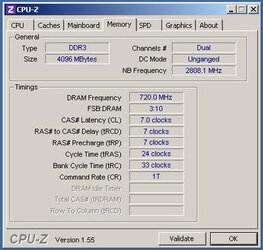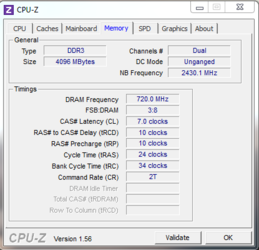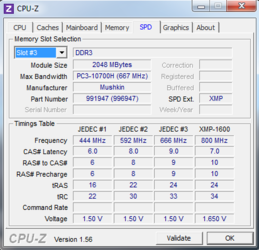Dear everyone,
I'm pretty new to Overclock although have read some threads in this forum for basic OC knowledge. Now I'm Ocing an AMD 1055T with a 1600 memory chip. The question I have is: I'm now at FSB = 245, and my CPU speed it around 3.3Ghz where my memory can run at 1600 full speed. I notice that when I OC my CPU higher, I must lower my memory speed to keep my computer stable. To get to the next set with mutiplier of memory being 5.33 to reach the 1600MHz speed will require a FSB at around 300 which may not be that easy to reach. So I'm wondering if I should keep OCing my CPU or should I stop now to maximize my memory speed? In another word, is a higher CPU speed more important or a higher memory speed?
May be a noob question. Hope someone would like to share some ideas.
Thank you very much in advance!
I'm pretty new to Overclock although have read some threads in this forum for basic OC knowledge. Now I'm Ocing an AMD 1055T with a 1600 memory chip. The question I have is: I'm now at FSB = 245, and my CPU speed it around 3.3Ghz where my memory can run at 1600 full speed. I notice that when I OC my CPU higher, I must lower my memory speed to keep my computer stable. To get to the next set with mutiplier of memory being 5.33 to reach the 1600MHz speed will require a FSB at around 300 which may not be that easy to reach. So I'm wondering if I should keep OCing my CPU or should I stop now to maximize my memory speed? In another word, is a higher CPU speed more important or a higher memory speed?
May be a noob question. Hope someone would like to share some ideas.
Thank you very much in advance!
 to OCF!
to OCF! Just like TFR explained above.
Just like TFR explained above. 

